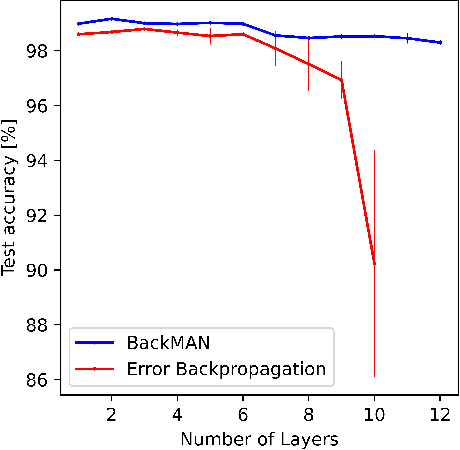Seeking Next Layer Neurons' Attention for Error-Backpropagation-Like Training in a Multi-Agent Network Framework
Paper and Code
Oct 15, 2023



Despite considerable theoretical progress in the training of neural networks viewed as a multi-agent system of neurons, particularly concerning biological plausibility and decentralized training, their applicability to real-world problems remains limited due to scalability issues. In contrast, error-backpropagation has demonstrated its effectiveness for training deep networks in practice. In this study, we propose a local objective for neurons that, when pursued by neurons individually, align them to exhibit similarities to error-backpropagation in terms of efficiency and scalability during training. For this purpose, we examine a neural network comprising decentralized, self-interested neurons seeking to maximize their local objective -- attention from subsequent layer neurons -- and identify the optimal strategy for neurons. We also analyze the relationship between this strategy and backpropagation, establishing conditions under which the derived strategy is equivalent to error-backpropagation. Lastly, we demonstrate the learning capacity of these multi-agent neural networks through experiments on three datasets and showcase their superior performance relative to error-backpropagation in a catastrophic forgetting benchmark.
 Add to Chrome
Add to Chrome Add to Firefox
Add to Firefox Add to Edge
Add to Edge